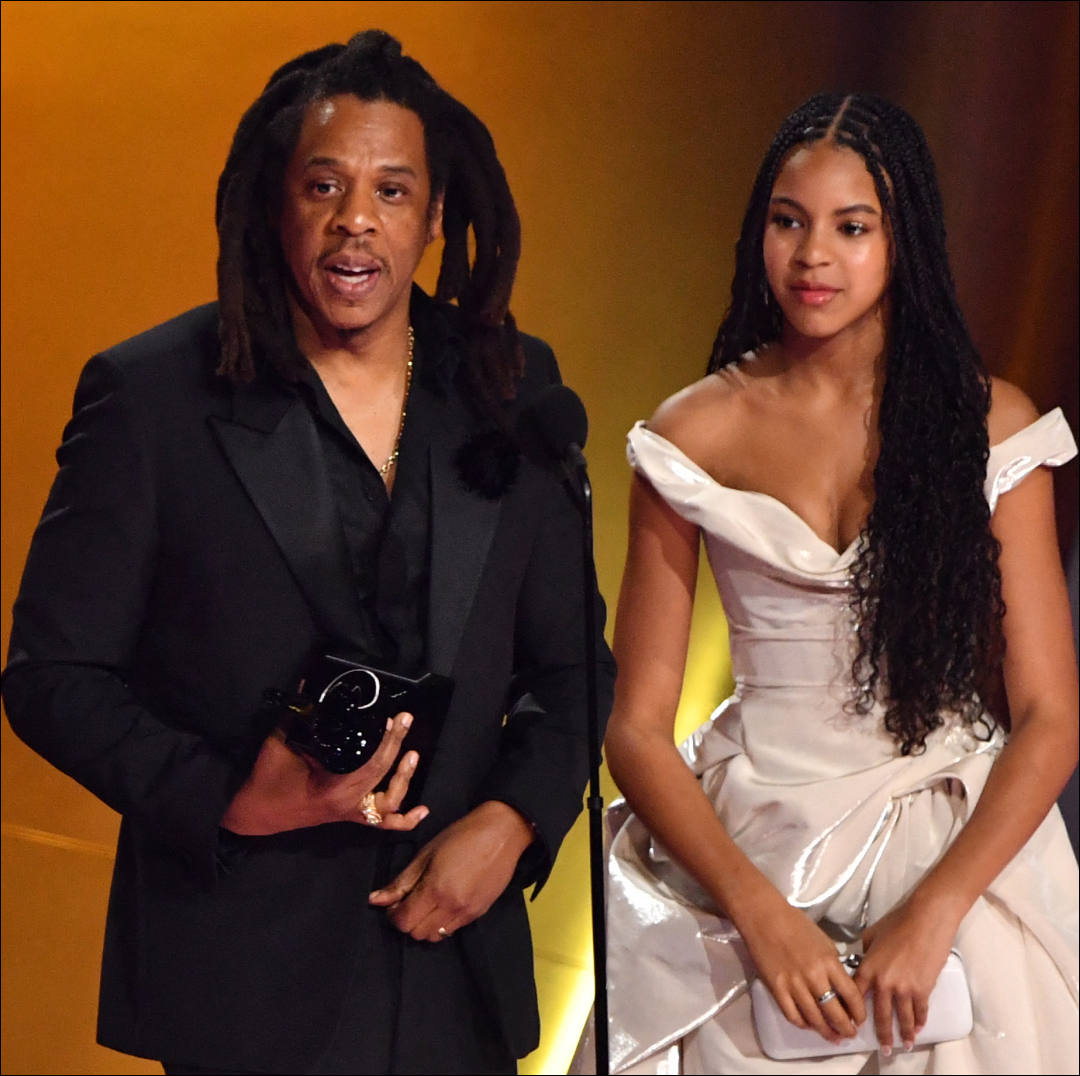
The 2024 Grammy Awards were filled with several viral moments, but undeniably the most significant moment came in the form of truth-teller Shawn “Jay-Z” Carter. When accepting the Dr. Dre Global Impact Award, instead of using the spotlight to look back at his own career achievements, the rapper took the opportunity to call out the awards show’s well-documented—yet largely ignored in mainstream media—mistreatment of rap and “urban” artists.
In his speech, Jay-Z reminded viewers of the several controversies within Grammys history, including Will Smith and Jazzy Jeff’s boycott in 1989, when the pair learned that the then newly introduced award for Best Rap Performance wouldn’t be aired in the televised ceremony. Jay-Z also held his own boycott a decade later; despite being nominated for Best Rap Album in 1999 (and winning), he did not attend in solidarity with DMX, the late legend who was snubbed that year despite releasing two albums within the eligibility period.
While on stage Sunday night, Jay-Z's continued not-so-subtly pointing out Beyoncé’s lack of wins for Album of the Year despite being the most awarded artist in Grammys history with 32 trophies.
“So even by your own metrics, that doesn’t work,” he said. “I’m just saying: We want [the Grammys] to get it right,” he said. At least get it close to right. And obviously it’s subjective. Obviously it’s subjective because, you know, it’s music and it’s opinion-based. But some things, you know.”
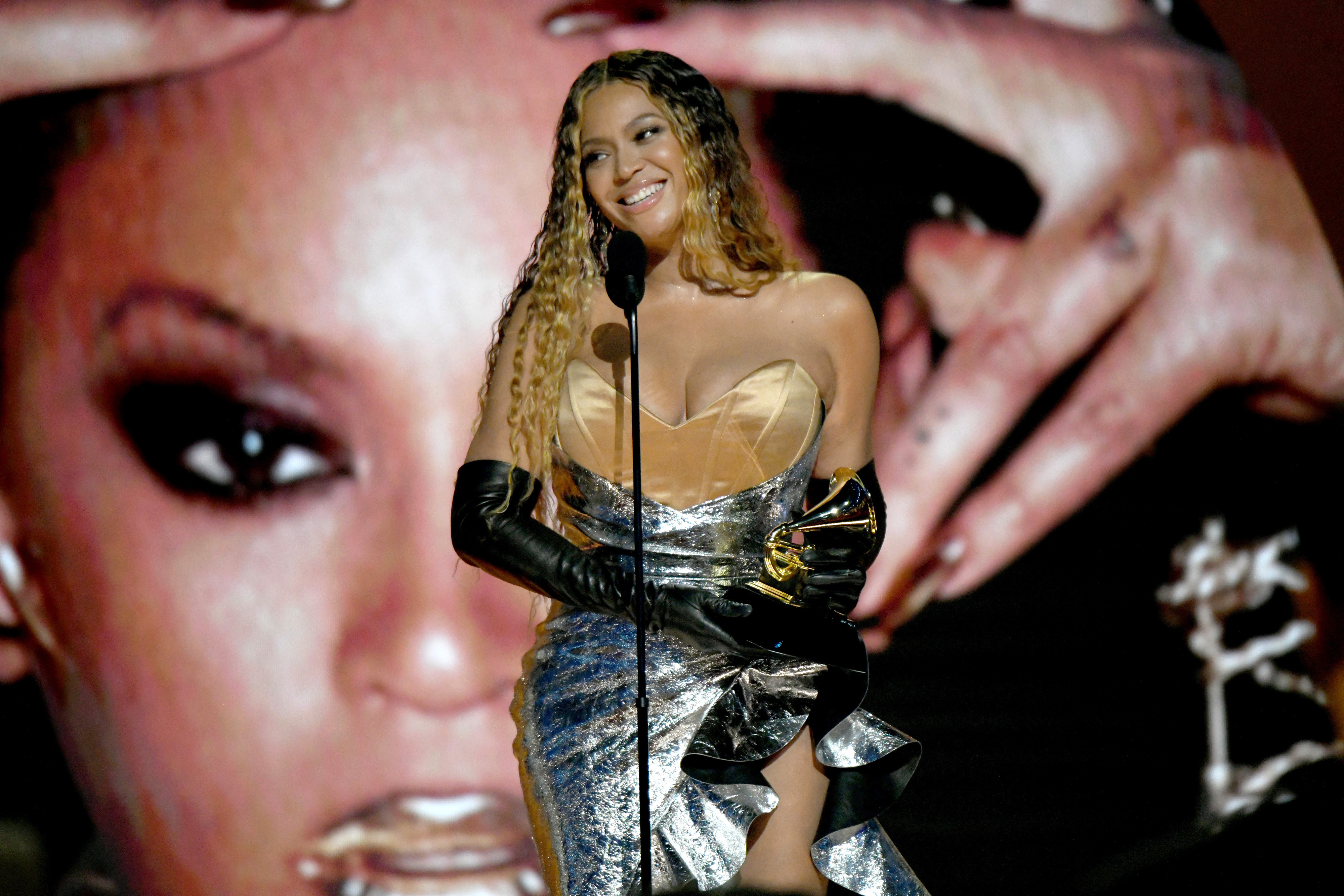
The Grammys have faced accusations of racial discrimination since its first ceremony in 1959, and several notable snubs and upsets have continued raising eyebrows well into the 21st century. In March 2021, a study by the USC Annenberg Inclusion Initiative found that Black performers represented approximately 38 percent of all artists on the Billboard Hot 100 from 2012 to 2020, but they only received 26.7 percent of top Grammy nominations during that same period. That was the same year that the Weeknd boycotted the ceremony, after receiving zero nominations for his After Hours album, including his hit song “Blinding Lights.” That year, the Grammys’ nomination process, including the use of "special committees" to decide the final set of nominees, came under heavy scrutiny, with fans wondering whether the lack of racial diversity in the upper echelons of the Recording Academy was the reason why Black albums—which ultimately shake culture and have proven to change the entire record industry (even earning Pulitzers)—still couldn’t break into the “Big 4” categories (Record of the Year, Song of the Year, Best New Artist, and Album of the Year).
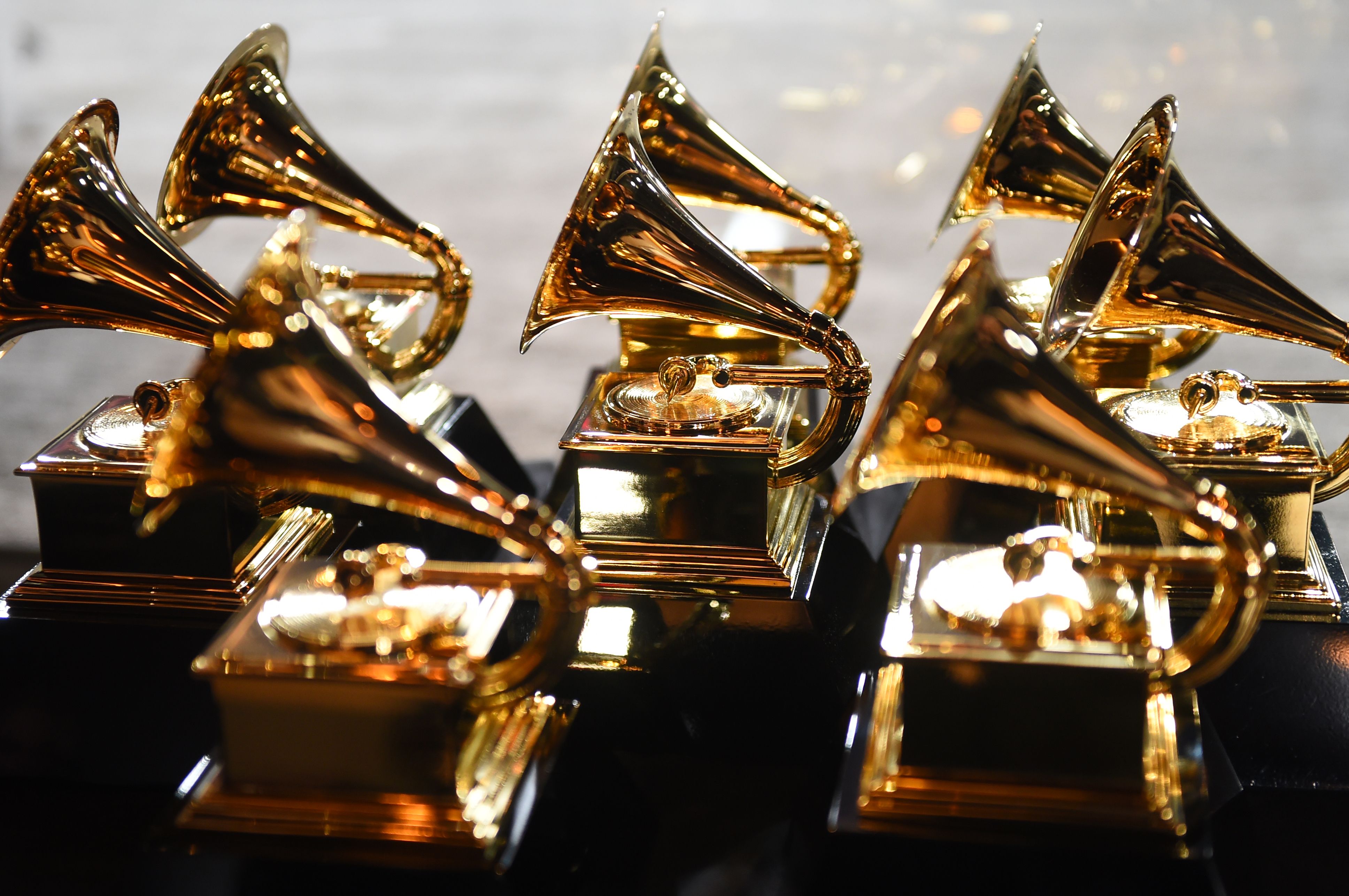
With his speech, Jay-Z was the perfect mouthpiece to bring questions of the Grammys’ treatment of Black artists to the main stage. Yes, it’s a year where the Recording Academy can claim some big wins for diversity; several articles have pointed out that each of the nine televised awards during the 2024 ceremony went to female artists. It’s also a year that included several exciting wins for Black women, including Coco Jones’ win for Best Traditional R&B Performance for “ICU,” and “Water” singer Tyla winning for the new category Best African Music Performance. Tyla’s win would have been a landmark moment for the ceremony, but instead it was shown during the untelevised segment, just like the Best Rap Performance category back in 1989. Host Trevor Noah (who is South African) did proudly yet briefly mention the introduction of the African music category, but only to shout it out as an example of the award show’s diversity. In fact, this year all of the categories where Black artists usually dominate, from rap to soul to progressive R&B (renamed from “urban contemporary" in 2020) were all punted to the non-televised pre-ceremony. Meanwhile in the over three-hour televised ceremony, Victoria Monét, SZA, and Karol G were the only artists of color shown accepting an award (and only SZA received the honor of both a win and a performance slot) while several white artists (including Billie Eilish, Miley Cyrus, and Taylor Swift) received multiple moments on stage.
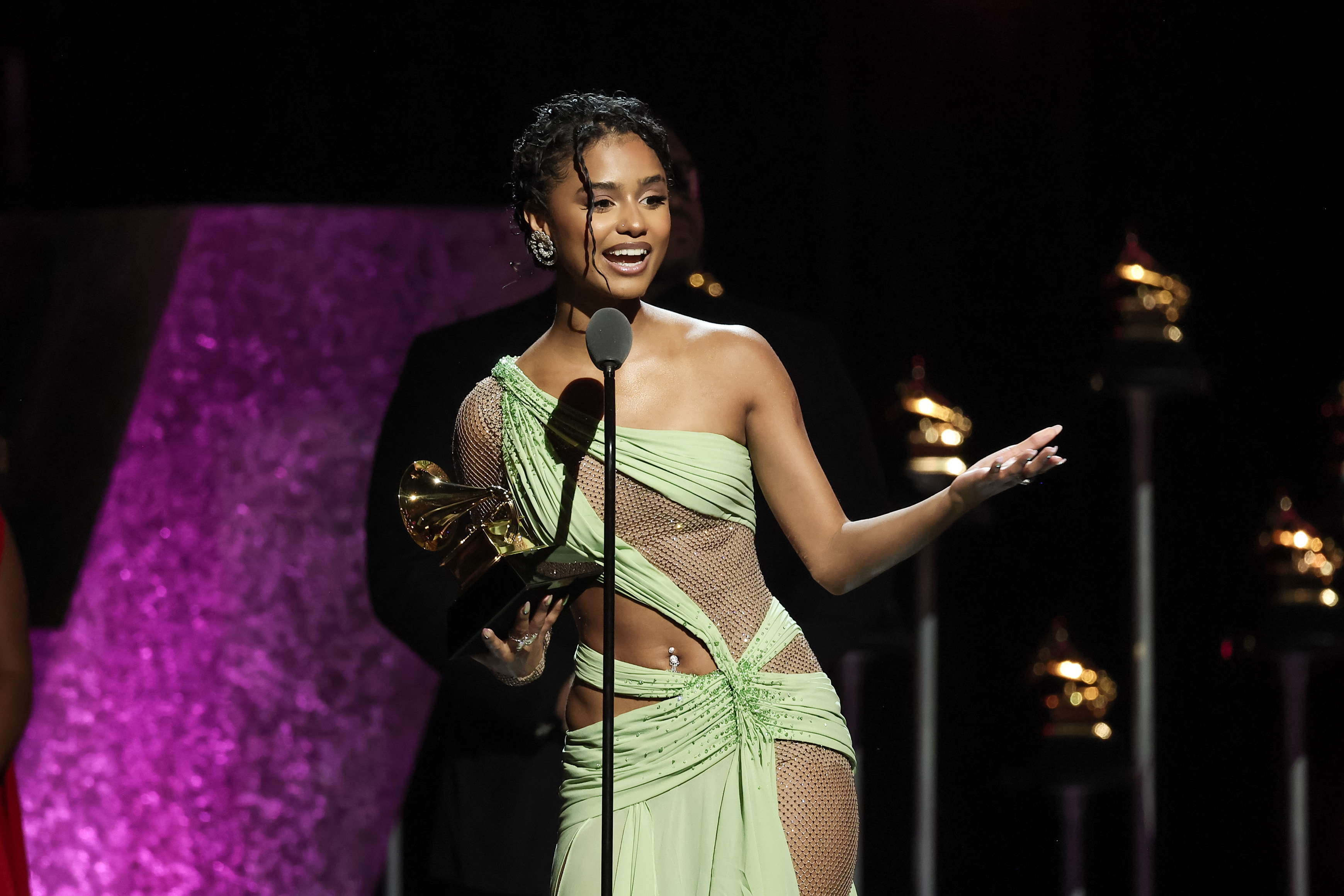
Once it gets down to a year-by-year breakdown, it’s easy for "who has the bigger fandom?" arguments to dominate any discussion of systemic issues. But looking at overall patterns, you begin to see who these awards' bodies prioritize and where they can do better. Major industry awards shows can no longer laud itself for miniscule diversity wins while asking fans to overlook its history of under-representing an entire cohort of artists. To add insult to injury, the Grammys will often use Black artists for ratings clout, advertising them as highly-anticipated performers or buzzy presenters, but when it comes to the significant chance to win an industry-best award on primetime television, the ceiling’s often too hard to breach. Beyoncé comes up so much in this discussion because she is the prime example of this phenomenon. Consider her last two major awards wins: Best Rap Song with Megan Thee Stallion in 2021 and Best Dance/Electronic Album for Renaissance in 2023. At the time Noah, who also hosted last year, made grandiose and repetitive announcements that she had broken records for her jaw-dropping amount of Grammy wins. All that pomp and circumstance feels empty when you realize only one of her history-making 32 awards was in one of the Big Four categories—when she won Song of the Year for “Single Ladies (Put a Ring on It)” all the way back in 2010. Since 2011, only 12 Black artists have won a Grammy in the Big Four categories (and none of them were chart-toppers like Rihanna, Drake, the Weeknd, or SZA). Whether it’s Beyoncé on an individual level or the statistics as a whole, Black artists aren’t being recognized by the Grammys on the same level of impact and commercial success they’ve had in the real world.
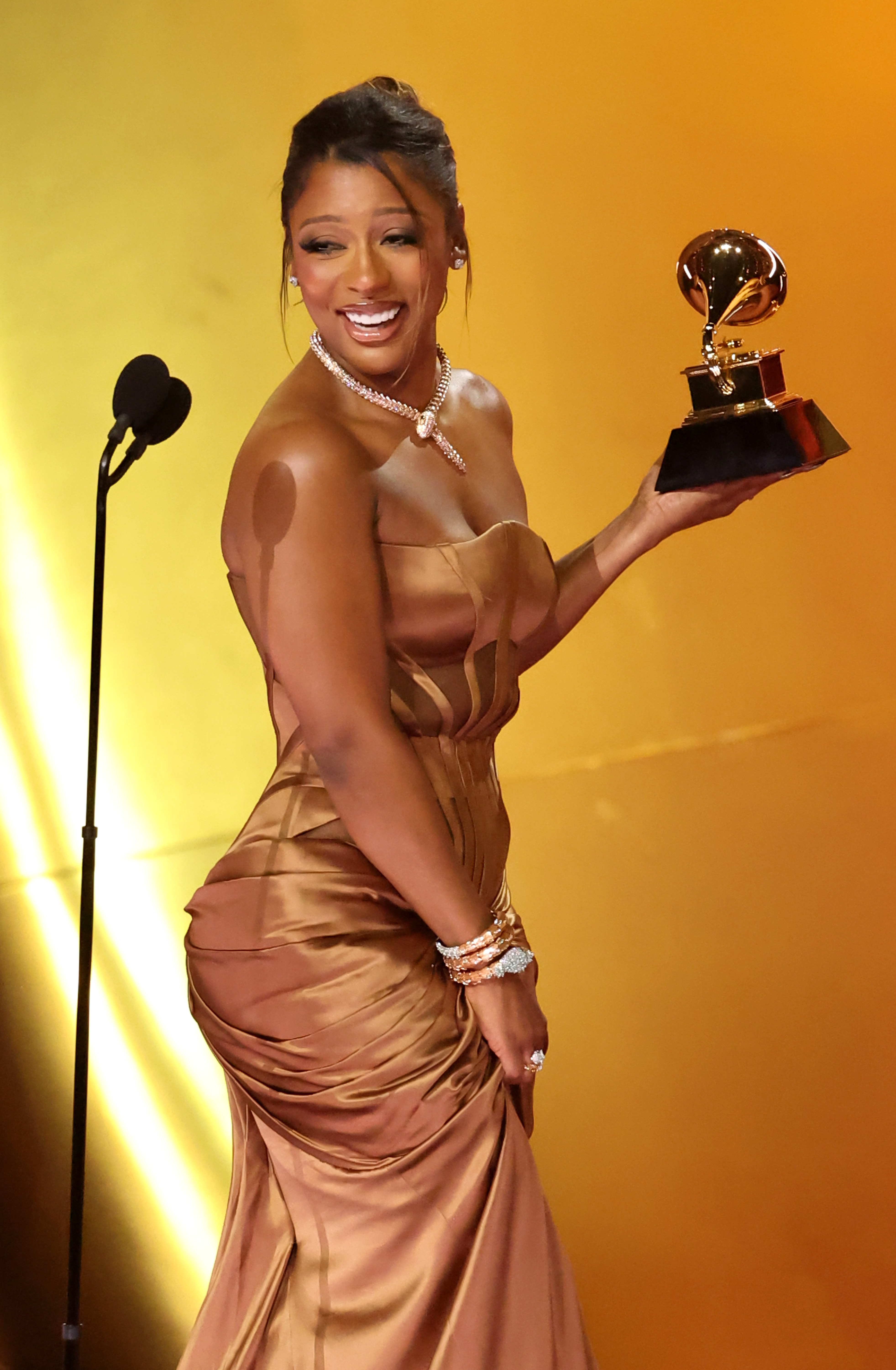
Of course, people of color have been calling out the Grammys and other critics associations for not giving Black creatives the flowers they deserve since the dawn of social media. We care so much not only because Grammys recognition brings artists heightened publicity, investment, and clout within the industry, but also because we know that when the Grammys get it right, they create magical, emotional moments. In addition to Jay-Z’s speech, the night’s buzziest moments came from Black singers having cathartic moments on stage. Tracy Chapman’s return to the Grammys to perform her 1988 song “Fast Car” brought viewers to tears and catapulted the song to number 1 on iTunes, while Victoria Monét’s Best New Artist win and her emotional speech about her “15-year pursuit” towards the golden gramophone reminded viewers that hard work and talent can lead to much-earned success. Those are the moments that Black music-lovers are going to remember for a lifetime, and the moment which will inspire new artists hoping to see themselves in pop culture. That’s the point of these awards, to celebrate and recognize the best music of the year and show why music matters. But for the Grammys to matter, they need to accurately celebrate all music.







